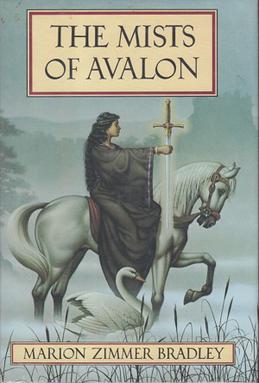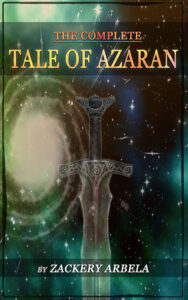It is an odd fact about artistic endeavors that those possessed of the greatest creative genius can also be the most reprehensible human being. Its an odd balancing act, a way for the universe to level scales. Which begs the question, how should those of us who read, look and listen to such works regard their very, often horrible flawed creators? Should we see what they create as separate from how they have lived? Or should see the both as flowing out of each other, and that to reject one is to reject the other?
Love the art, hate the artist? Or hate the art because of the artist?
Let us consider a few examples:
 H.P. Lovecraft, one of the fathers of weird fiction and a giant of the horror genre. Every one from Stephen King on down has cited him as an important influence, and a list of authors who have added to the Cthulhu Mythos over the years would run to several pages long. The Call of Cthulhu, the Shadow over Innsmouth…the list of his works goes on.
H.P. Lovecraft, one of the fathers of weird fiction and a giant of the horror genre. Every one from Stephen King on down has cited him as an important influence, and a list of authors who have added to the Cthulhu Mythos over the years would run to several pages long. The Call of Cthulhu, the Shadow over Innsmouth…the list of his works goes on.
He was also a racist and an anti-Semite whose views were considered extreme even by the standards of his own time, who saw anyone who was not of Anglo-Saxon descent as lesser (despite this he was married for a time to a Jewish woman.) Indeed, one could make the argument that it was his racism that gave his works their edge – Michel Houllebecq (himself no stranger to controversy) points out in H. P. Lovecraft: Against the World, Against Life that Lovecraft took racism down to its bare core: fear. Fear of the other, fear of change, fear of that which we do not understand.
Today Lovecraft’s views would put him beyond the pale. Yet he continues to be read and be an inspiration. Should we separate the man from his work? Or if we cast the man, then it follows we must cast out what he has created?
 Marion Zimmer Bradley, one of the titans of scifi and fantasy, the author of The Mists of Avalon, which retold the story of King Arthur from a feminist, pagan standpoint and brought a fresh perspective on the old legend. And through Marion Zimmer Bradley’s Fantasy Magazine she provided openings for new authors to show their works, something all to rare in any era.
Marion Zimmer Bradley, one of the titans of scifi and fantasy, the author of The Mists of Avalon, which retold the story of King Arthur from a feminist, pagan standpoint and brought a fresh perspective on the old legend. And through Marion Zimmer Bradley’s Fantasy Magazine she provided openings for new authors to show their works, something all to rare in any era.
She also sexually abused her own daughter – see this article from the Guardian for details. Again, can we separate the artist from her work?
Phil Spector, a pioneering record producer who created the Wall of Sound and worked with everyone from the Ronettes to the Beatles to the Ramones…and now imprisoned for second degree murder.
Charles Dickens, one of the great authors of the English language…also a bad husband and worse father.
Caravaggio, one of the founders of the Baroque movement in art…who killed a man in a brawl over a gambling debt and spent the last four years of his life on the run from a long list of enemies.
 And so on and so forth. Artists who created works of wonder down the centuries…even as the lives lives reprehensible in one form or another. Can we separate the individual from the art? My personal view at the moment is yes. Art can be seen as separate from the artist, indeed one of the marks of something truly exceptional is its ability to stand on its own without any need to know anything about its creator. That the work alone is explanation enough. Lovecraft’s racial preoccupations don’t make the Colour Out of Space any less shocking. The Mists of Avalon remains an original retelling of the Arthurian saga. I can listen to End of the Century without remembering its producer’s subsequent offenses. If we were to scrub the historical records of all art, music and literature created by those whose lives were less than exemplary by the standards of our own time, our bookshelves were be empty, our stereos and iPods silent and the museum walls bare. We must judge such things on their own merits, independent of the failures behind the scenes, otherwise we could not enjoy anything at all.
And so on and so forth. Artists who created works of wonder down the centuries…even as the lives lives reprehensible in one form or another. Can we separate the individual from the art? My personal view at the moment is yes. Art can be seen as separate from the artist, indeed one of the marks of something truly exceptional is its ability to stand on its own without any need to know anything about its creator. That the work alone is explanation enough. Lovecraft’s racial preoccupations don’t make the Colour Out of Space any less shocking. The Mists of Avalon remains an original retelling of the Arthurian saga. I can listen to End of the Century without remembering its producer’s subsequent offenses. If we were to scrub the historical records of all art, music and literature created by those whose lives were less than exemplary by the standards of our own time, our bookshelves were be empty, our stereos and iPods silent and the museum walls bare. We must judge such things on their own merits, independent of the failures behind the scenes, otherwise we could not enjoy anything at all.
And yet…and yet…
 What of Leni Riefenstahl? Her masterpiece was Triumph of the Will, which is studied to this day for its technical innovations. It is also a propaganda piece for one of the vilest regimes ever to hold power in human history?
What of Leni Riefenstahl? Her masterpiece was Triumph of the Will, which is studied to this day for its technical innovations. It is also a propaganda piece for one of the vilest regimes ever to hold power in human history?
Or DW Griffith, director of Birth of a Nation, the greatest piece of puffery ever created for a terrorist organization…and a groundbreaker in innovation for film as an art form?
So a I guess an honest answer to the question, “Can we separate art from the artist?” is…I have no bloody idea.


